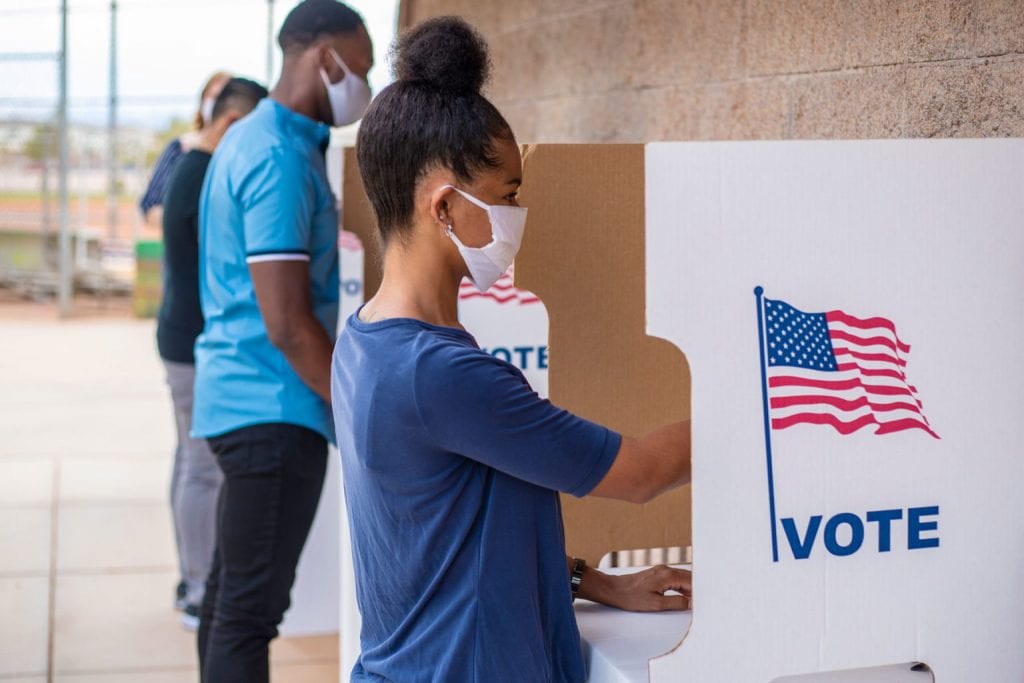The nonpartisan Voter Communications Task Force focuses on identifying and helping others implement the best ways to communicate reliable election information to already registered voters.
USC has allied with Google, elected officials and nonprofit leaders on a mission to help provide voters with important information about where, when and how to vote in the 2020 elections — now just six weeks away.
The Voter Communications Task Force, supported by the Center on Communication Leadership & Policy at the USC Annenberg School for Communication and Journalism, is a nonpartisan initiative with a narrow focus: to identify and help others implement the best ways to communicate reliable election information to already registered voters.
“In view of the difficulty that some citizens are having in trying to learn the rules for casting absentee ballots and in finding their voting locations during COVID-19, we felt that it was essential to help organizations to provide voters with accurate information from sources they can trust,” said Geoffrey Cowan, director of the USC Annenberg Center on Communication Leadership & Policy and former dean of the USC Annenberg School. “We hope that this effort will help to create an informed electorate.”
Led by former governors Jack Markell of Delaware, and Brian Sandoval of Nevada, the Voter Communications Task Force includes Google Vice President Vint Cerf, widely known as a “father of the Internet”; Maggie Toulouse Oliver, New Mexico secretary of state and president of the National Association of Secretaries of State; Nancy Gibbs, director of Harvard University’s Shorenstein Center and former editor-in-chief of Time; and Reta Jo Lewis, director of congressional affairs for the German Marshall Fund and former special representative for global intergovernmental affairs for the U.S. State Department.
“The work we’re doing is at the core of democracy,” Sandoval said. “All citizens need to have accurate information about when, where and how to vote.”
Voter Communications Task Force will provide ‘good quality information’
“Google is very much interested in trying to provide good quality information about voting, especially during this 2020 election,” said Cerf, vice president and chief internet evangelist for Google. “Accurate information is essential and must be available to the voting public.”
The Voter Communications Task Force has released a report that features a strategy for repeatedly pushing out information to registered voters through a variety of communication channels, including local news outlets, community and civic group outreach, digital messaging, push alerts and paid or in-kind advertising.
Varying voting rules present challenges
The rules for elections vary from state to state and even from district to district. Due to the pandemic and other considerations, voting processes and locations may change at the last minute. The task force aims to help those organizations and groups already working on election issues to amplify accurate election information.
The work of the Voter Communications Task Force is made possible through the support of Google, the USC Annenberg Center on Communication Leadership & Policy, the Annenberg Foundation and GRoW at the Annenberg Foundation.
—
Learn more about the Voter Communications Task Force and read its final report detailing proactive voter communication methods here.
